Have you ever walked into a bathroom that was so dirty, you asked yourself if it was even worth it? Believe it or not, cats are the same way toward their litter box. They want a clean place to go, or else they’ll find a different spot to relieve themselves.
Felines have incredibly powerful noses, and how you clean their litter matters. Some cleaners on shelves today can actually be quite harmful to our furry friends. Excessive elimination or aggressive behavior in cats might be brought on by a dirty litter box.
Additionally, dangerous germs and parasites like Toxoplasma gondii that can infect people can be found in cat urine and feces. It’s extremely important to keep their bathroom spaces clean and sanitary.
Let’s take a look at some of the best natural methods to clean a litter box.
How Often Should I Clean The Litter Box?
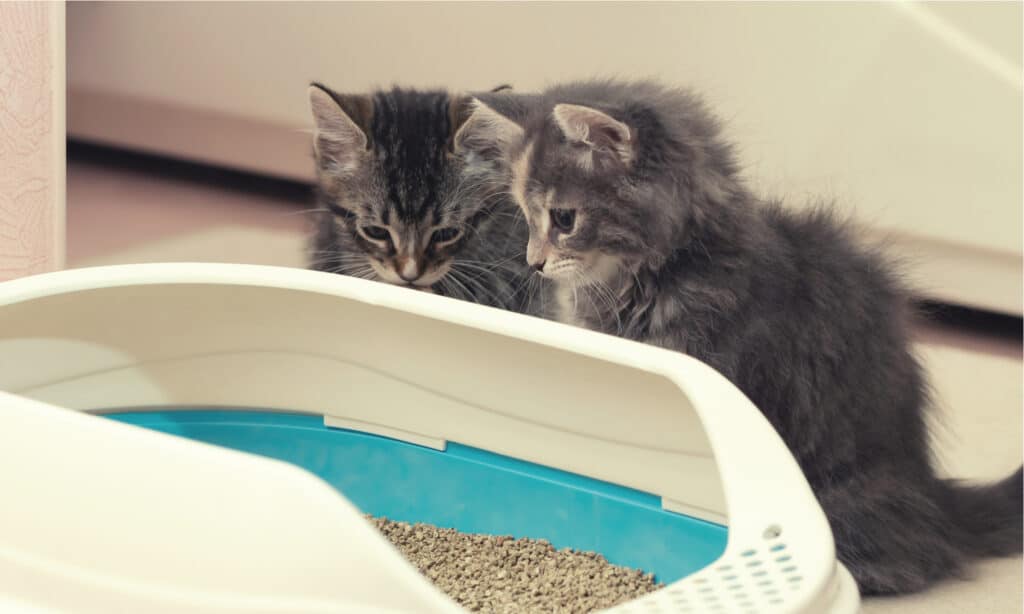
Cats will often watch you clean their litter box because they’ve marked it with their scent.
©galsand/Shutterstock.com
Cats urinate two to four times daily. If she frequently goes more or less frequently, don’t fret. The frequency with which a cat urinates might vary depending on factors like fluid consumption, age, and indoor temperature.
Cats typically handle their serious business once every day. Again, if your feline friend produces excrement more frequently, it’s likely not cause for concern. A cat’s feces schedule may be impacted by diet, medicine, exercise routines, and general health.
Maintain the litter box by scooping it no less than twice per day to get rid of any waste or lumps. This keeps the litter box tidy and stops smells from developing from the litter.
Where Should I Put The Litter Box?
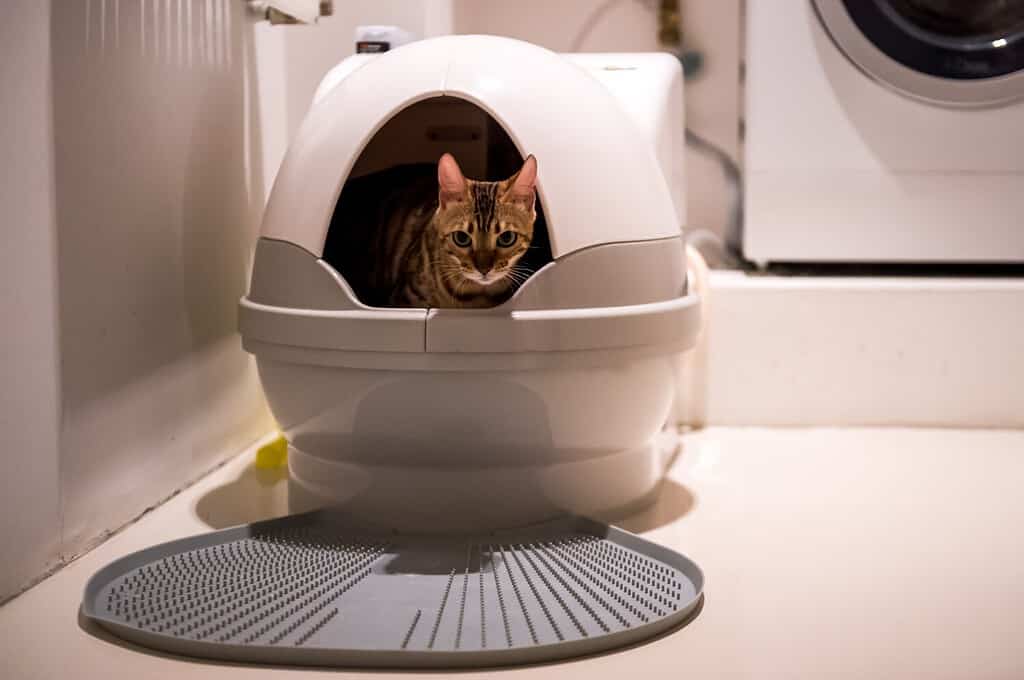
You should have an extra box per two cats.
©279photo Studio/Shutterstock.com
Distributing the boxes in various areas could offer cats choices since they frequently want some privacy when they’re using the litter box. Think about putting a litter box in each room where your pet spends time for the best odor control and sanitation.
Two litter boxes for two cats can be placed next to one another, but only if there’s a small amount of space. It’s often preferable to keep them apart to avoid arguments over the bathroom.
Separate boxes make it easier to avoid any potential problems or mishaps because cats prefer to have distinct allocated areas for urination. Make sure the box isn’t under anything, like a desk or table.
It’s ideal to scoop out the litter box every day if you use clumping litter, and you should replace it entirely once a month at the very least. It can be better to change the litter box more frequently, every two to three weeks if you have multiple cats.
Although the idea of furniture with a built-in litter box may make your space look more aesthetically pleasing, your cat won’t like it. Lastly, remember that you should keep the litter box separate from your pet’s food and drink bowls in a calm, private area.
We don’t know about you, but we’re sure glad the toilet isn’t in the dining room. Your cats likely feel the same!
Natural Ways to Clean the Litter Box
1. Deodorize with Baking Soda
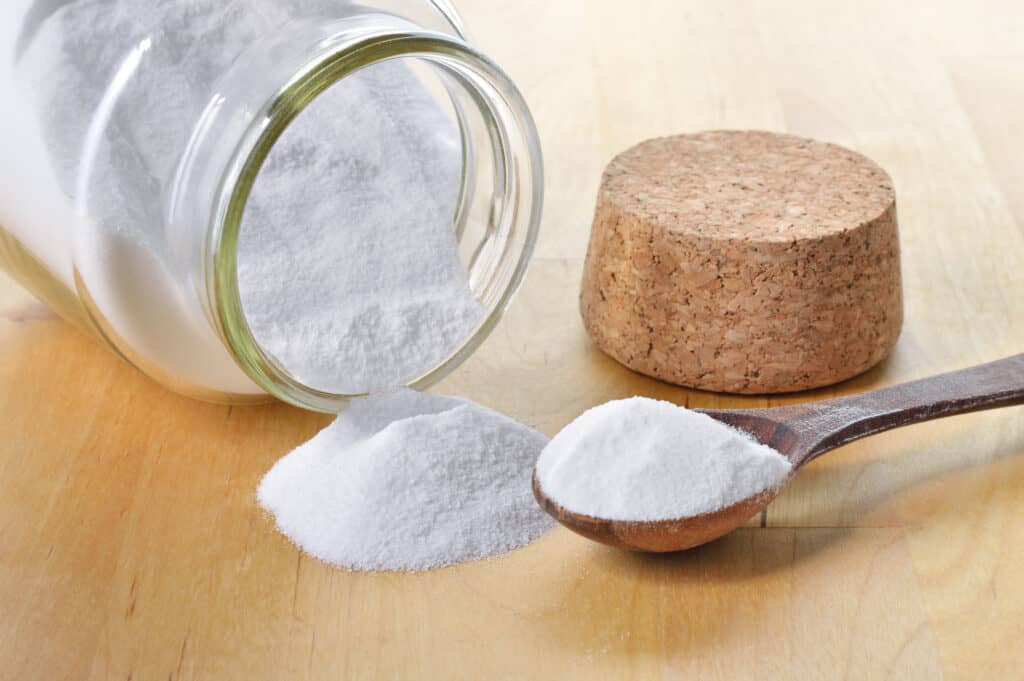
Sprinkle baking soda on your carpets if your cat has an accident.
©Geo-grafika/Shutterstock.com
We are aware that baking soda works wonders as a natural deodorizer for litter boxes. Most likely, you are currently using it in your refrigerator. Thankfully, baking soda is totally safe to use in a litter box.
It’s non-toxic and an affordable way to keep those awful smells at bay. Adding some baking soda to the litter can help the litter remove smells from urine. We advise you to stay away from any scented baking soda options because cats often dislike synthetic smells.
Despite its outstanding odor-control abilities, baking soda cannot take the place of a regular cleaning regimen. Sprinkling it on the litter is a great addition to the cleaning schedule you already have in place.
2. Charcoal Filters

Charcoal can deodorize and purify the air.
©Everyday better to do everything you love/iStock via Getty Images
Naturally safe charcoal filters might assist in getting rid of unpleasant cat odors. Charcoal is a completely non-toxic, entirely natural, and inexpensive odor-control solution, similar to baking soda.
Compared to other activated charcoal, bamboo charcoal works for a longer amount of time and is more efficient at reducing stinky odor. Some kits available online can last for several months.
3. Vinegar with a Thorough Rinse
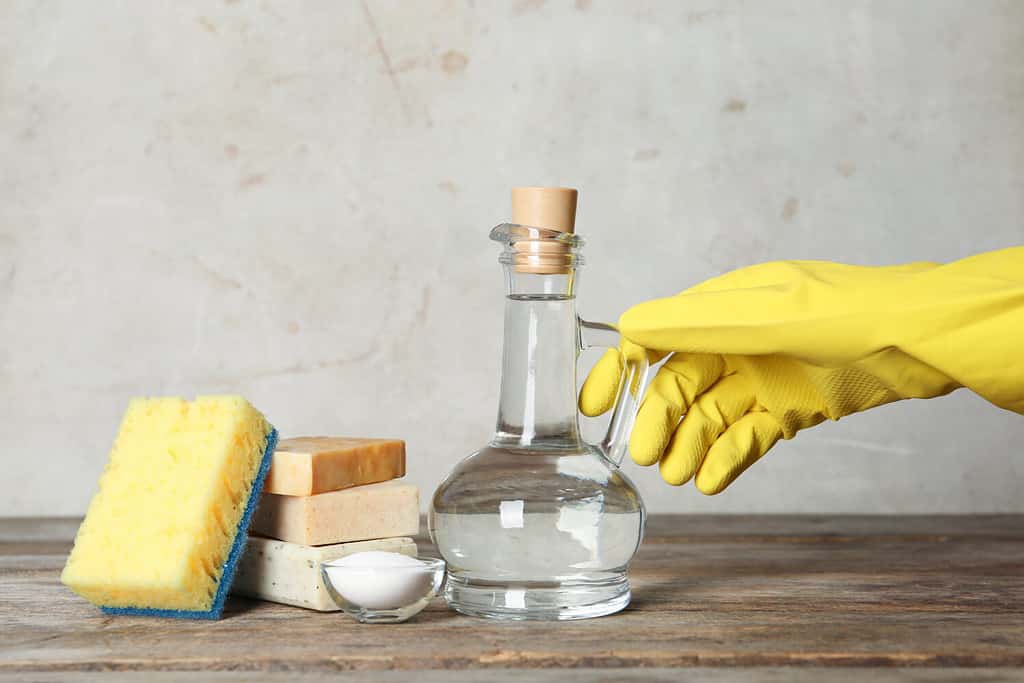
Be sure to never mix bleach and vinegar when cleaning a litter box.
©New Africa/Shutterstock.com
Although the iconic cat legend Jackson Galaxy suggests against using vinegar, as long as the litter box is rinsed thoroughly, it shouldn’t be an issue. The main reason Galaxy says to avoid this product is due to its potent smell.
After emptying the litter box completely, sanitize it with boiling water. Then you can add some white or apple cider vinegar to the litter box. Scrub the entire box to make sure all the dirt and debris is off of the floor and walls of the container.
Pour out any remaining liquid and rinse the box with cold water multiple times. Allow it to air dry if possible, but paper towels are fine to use if you’re in a rush.
4. Natural Cleaners
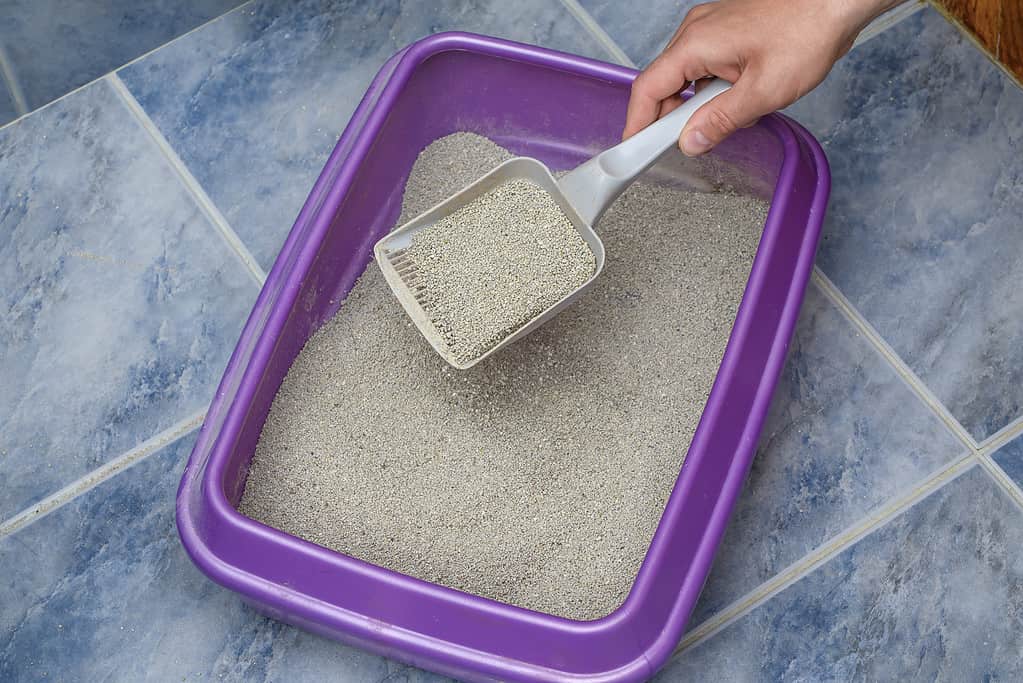
You can take it a step further and get a self-cleaning litter box, though they are pricey!
©Pawel Kacperek/iStock via Getty Images
Thankfully, there are several natural litter box enzyme cleaners on shelves today. All of the products by Nature’s Miracle are great for getting rid of the stink and any bacteria hovering in their box. Again, avoid any products that have added scent or color, as they’re unnecessary and your cat would prefer something as natural as possible.
The photo featured at the top of this post is © New Africa/Shutterstock.com
Thank you for reading! Have some feedback for us? Contact the AZ Animals editorial team.







